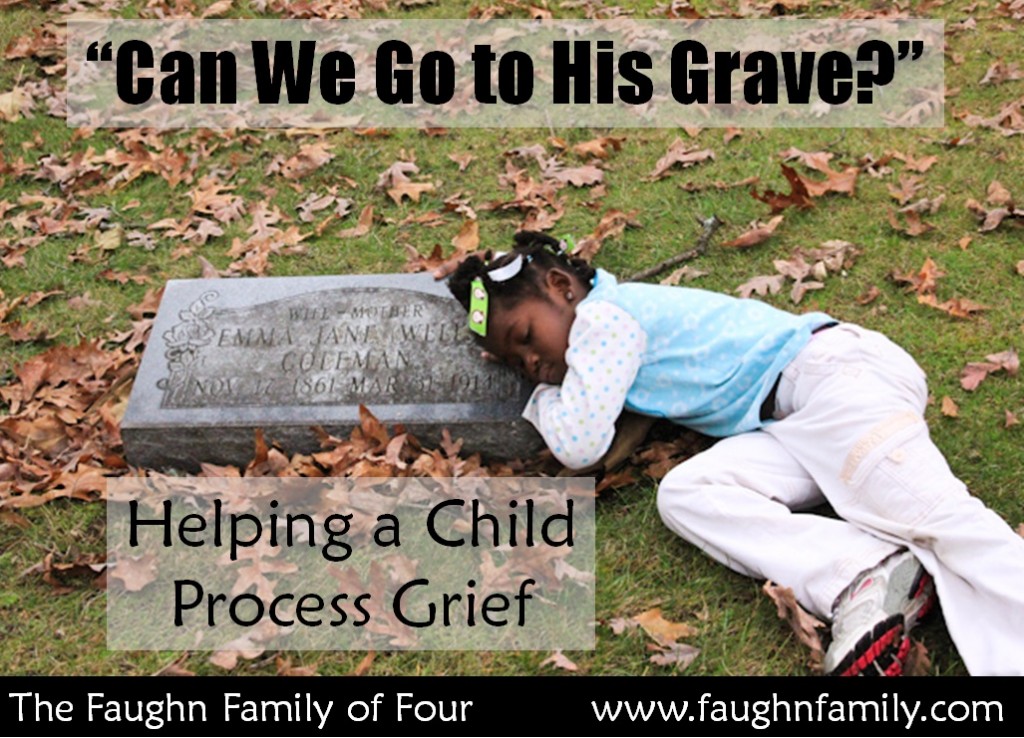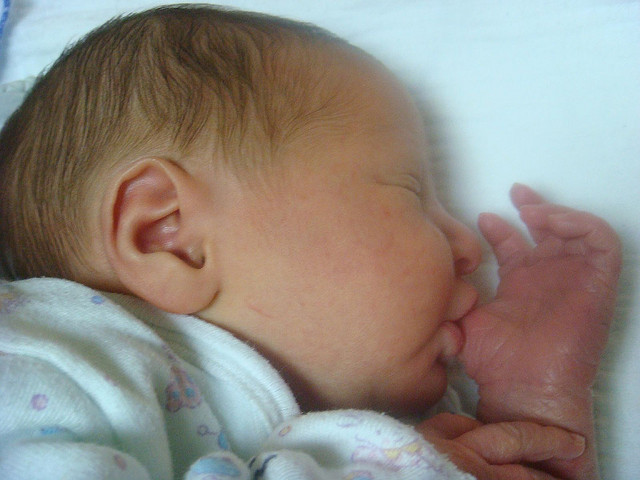“Can We Go to His Grave?” : Helping a Child Process Grief
He died a few weeks ago, and we knew his death was coming. He had been ill for some time, and we had both called and visited with him. Of course, it was still sad, and we miss him, but his passing was not unexpected.
Then, out of nowhere, just a couple of nights ago, our eight-year-old starting crying as she said her nightly prayer to the Lord. Her tears were out of missing this elderly man who always gave her a hug and handed her candy. So far as I know, she hadn’t cried since the day we found out about his passing, but now she was sobbing as she thought about him.
It took nearly an hour for Leah and I to get her calmed down and to sleep. But, in the midst of that crying, she asked both of us, “Can we go to his grave?”
Honestly, I have no idea why this man’s memory suddenly reappeared in her mind, or why it was so strong. I don’t know what caused our daughter to want to travel to his graveside (which we will do in coming days), and even take something there.
But this episode made me evaluate a little bit about how a child processes grief. While I am certainly no expert, here are three things this time of tears made me realize.
1. Every child is different, even in grief. My son cries when someone dies, but then he rarely is emotional beyond that initial news. Our daughter, though, will sometimes cry at a funeral, or (as we found out the other night) several days beyond. Both are okay, because every child is different and will process grief in a different way.
2. Children have very strong memories. Most of us know that, but sometimes those memories “come out” at seemingly random times. There was no reason (that we can think of) why our daughter would be so touched on that night by this man’s memory, but something obviously brought his life to her little mind. We need to let a child remember.
3. Comforting a child is difficult. When a faithful Christian passes away, it is not that difficult for an adult to find great comfort in the fact that the individual is at rest and in the hands of God. While we still hurt due to our loss, we can grasp that concept and find peace there. Not every child can “get” that, at least not to the same level. For most children, they just know they hurt, and it is difficult to find the words that will bring peace. Sometimes, it’s not words; it’s lots of hugs.
This night also made me remember something as a minister, and that is that I need to pay special attention to children at funerals. Sometimes, they get lost in the shuffle, and they could use a hug or kind word.
QUESTION: What are some things you can share to help a child who is trying to process grief? Share your thoughts in the comments.
———————
Photo background credit: Steven Depolo on Creative Commons
Don’t Miss a Post!
Subscribe via email to get every post for free, and get a FREE eBook.




One Comment
Mandi
Children also process grief through play, I know my own daughter did. She was only 3 when her brother was stillborn, but she acted out with dolls her feelings and even reenacted what she remembered the night of his tragic birth. It was all part of her own grief processing. We asked her questions about it too, and she asked us more questions in return. And we answered as much as we could (on her level) and kept nothing from her so that she knew it was acceptable to speak about her brother and his stillbirth. Now, at five years of age, she is very open and comfortable speaking about grief and death; and as a result, she is at ease offering comfort to others in need.